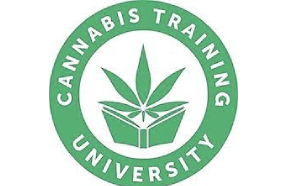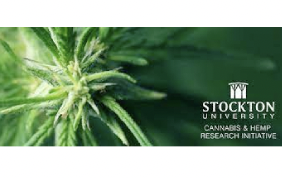Press Release
Florida cannabis training program online
Cannabis Training University-Leading Cannabis School
Master Grower Certification from Cannabis Training University
Cannabis Training University, the leader in cannabis education, is thrilled to announce its all-new Florida Cannabis Training Certification Program.
Cannabis Training University is pleased to offer such a discounted rate for our Florida cannabis training program to all Florida residents who are interested in a cannabis career.” – Jeff Zorn, CEOORLANDO, FL, UNITED STATES , January 5, 2024 /EINPresswire / — Cannabis Training University , a pioneering institution in cannabis education, is thrilled to announce the launch of its all-new Florida Cannabis Training Certification Program . This groundbreaking online program is specifically tailored for Florida residents, offering them an unprecedented chance to gain comprehensive cannabis education at an incredibly discounted rate.
Since its inception in 2009 as the first online cannabis college, Cannabis Training University has set the bar high, with over 70,000 graduates from around the globe, boasting the highest number in the industry. This legacy of excellence is now accessible to Floridians seeking to make their mark in the flourishing cannabis sector.
A Spectrum of Florida Cannabis Job Opportunities:
The Florida Cannabis Training Certification Program, presented by Cannabis Training University, encompasses a vast array of courses designed to equip individuals for various roles in the cannabis industry. These include:
.Dispensary and Budtender positions
.Cannabis cultivation
.Cannabis extraction techniques
.Medical cannabis applications
.Cannabis trimming skills
.Guidance on establishing legal cannabis businesses in Florida
.Cannabis marketing jobs
.
Competitive Edge in the Job Market:
With the cannabis industry rapidly expanding in Florida, the demand for knowledgeable and certified professionals is at an all-time high. This online Florida cannabis college program offers more than 350 hours of content, providing an in-depth understanding of the industry at a fraction of the cost of traditional four-year colleges. Graduates like Kevin Oats from Tampa, Florida, who said, “I took the Master of Marijuana Certification program online from Cannabis Training University and was able to get a budtender job at a leading Florida dispensary thanks to my knowledge and certification I received from CTU!” exemplify the practical benefits of this education.
Lucrative Cannabis Career Paths:
The program also sheds light on the salary prospects within the Florida cannabis industry, highlighting the lucrative opportunities available to trained professionals. From entry-level positions to specialized roles, the earning potential in this sector is a compelling aspect for job seekers.
Enrollment and Access:
For a limited time, Florida residents can enroll in this exclusive program by visiting Cannabis Training University. This is a rare chance to gain industry-recognized certifications and elevate career prospects in the dynamic world of cannabis. Enroll in the Master of Cannabis Certification Program today and learn all the latest Florida cannabis laws and regulations and prepare for a Florida cannabis job.
About Cannabis Training University:
Cannabis Training University is renowned as the leading cannabis school globally, setting the standard in cannabis education. Since pioneering online cannabis learning in 2009, CTU has been at the forefront of providing comprehensive, accessible, and affordable cannabis education to students worldwide.
Join the ranks of successful CTU graduates and transform your future in the cannabis industry. Enroll today and embark on a journey of learning and professional growth!

 Cannabis News1 year ago
Cannabis News1 year ago
 One-Hit Wonders1 year ago
One-Hit Wonders1 year ago
 Cannabis 1011 year ago
Cannabis 1011 year ago
 drug testing7 months ago
drug testing7 months ago
 Marijuana Business Daily1 year ago
Marijuana Business Daily1 year ago
 Education1 year ago
Education1 year ago
 Cannabis1 year ago
Cannabis1 year ago
 Education1 year ago
Education1 year ago



















